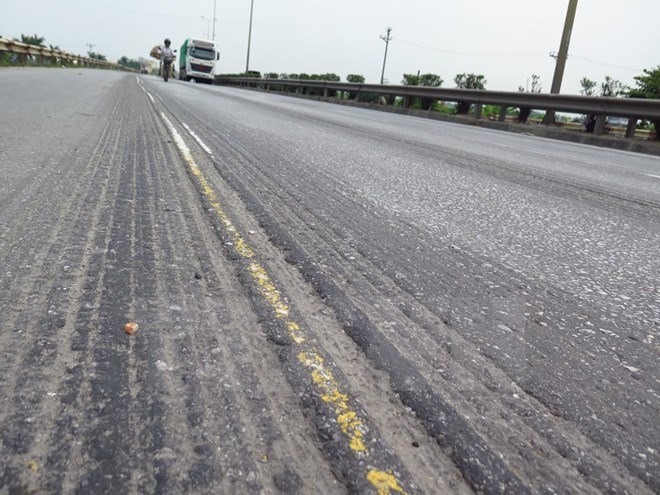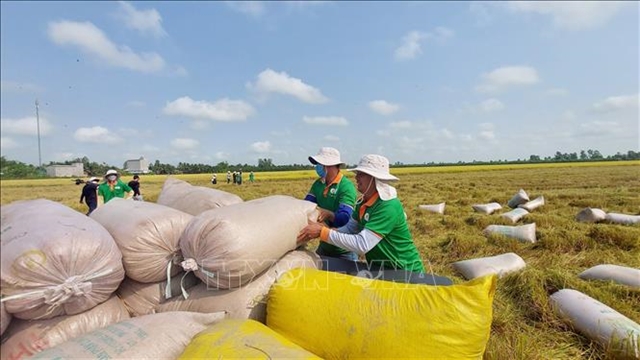 Society
Society

The Ministry of Transport (MoT) had decided to stop collecting tolls from build-operation-transfer (BOT) roads that had quickly fallen into disrepair after opening, reported online newspaper vietnamplus.vn.
 |
| The Ministry of Transport (MoT) had decided to stop collecting tolls from build-operate-transfer (BOT) roads that had quickly fallen into disrepair after opening, reported online newspaper vietnamplus.vn.– VNA/VNS Photo |
HÀ NỘI – The Ministry of Transport (MoT) had decided to stop collecting tolls from build-operate-transfer (BOT) roads that had quickly fallen into disrepair after opening, reported online newspaper vietnamplus.vn.
The action taken by transport minister Nguyễn Văn Thể has been applauded by experts and the drivers whose money is going straight into the pockets of BOT investors.
Several BOT highways have raised public concern after experiencing problems even in their trial periods.
For example, a section of the Đà Nẵng-Quảng Ngãi Expressway funded by Japan International Co-operation Agency JICA was opened to traffic in August last year, but after 14 months of operation, cracks and holes have appeared on the road surface.
The damage has caused risks for vehicles traveling at high speeds on the expressway.
The minister has asked the Việt Nam Expressway Corporation (VEC) – the investor – to stop collecting tolls on the road until the damage is repaired.
Toll collections would resume 16 days after repair work was completed, reported the paper.
A BOT project to upgrade and widen a section of road on the National Highway in Bình Định Province has also been hit with the same sanctions.
The 28.6km road was completed in May 2016 but local people and authorities have already lodged complaints about the project quality.
The investor was forced to halt toll collections at Bắc Bình Định Toll Station on the National Highway.
The minister has asked expressway corporations and project management boards to inspect projects and repair any damage.
Economic expert Nguyễn Minh Phong said that “the authority’s decision to stop toll collections on roads that were damaged and had not been repaired by investors was correct and necessary.”
“The BOT roads have been badly damaged but keep collecting fees in a direct violation of the legitimate interests of the people,” Phong told the paper.
“In other words, the people were "pickpocketed" in open. They were not offered good services but still had to pay as usual. It’s unacceptable,” he added.
Former director of State Assessment Department for Construction Works (under the Ministry of Construction) Trần Chủng said management authorities should establish why the roads had been damaged as well as the consequences to the whole road.
According to Chủng, no matter what the damage is, the investors should take all responsibilities due to loose monitoring and inspections.
In some recent cases, investors had been unwilling to deal with the problems, he said.
He supported the MoT’s move to punish staff involved in low quality road projects.
President of Hà Nội’s Automobile Association Bùi Sinh Quyền has also applauded the MoT’s decision.
“This was a necessary move to deter irresponsible investors,” Quyền said.
Collecting tolls on damaged roads was contrary to business principles, he added.
Additionally, investors who refused or just patched up damaged roads would have to take responsibility, even criminal action, for accidents relating to the quality of roads, Quyền said.
However, Quyền was unsure how many roads would be sanctioned under the decision, how the ministry would monitor its progress and whether the losses from halt to toll collections would be borne by the investors or added to the duration of the project.
According to experts, the MoT should listen to drivers because they are the ones who pay the tolls. – VNS




